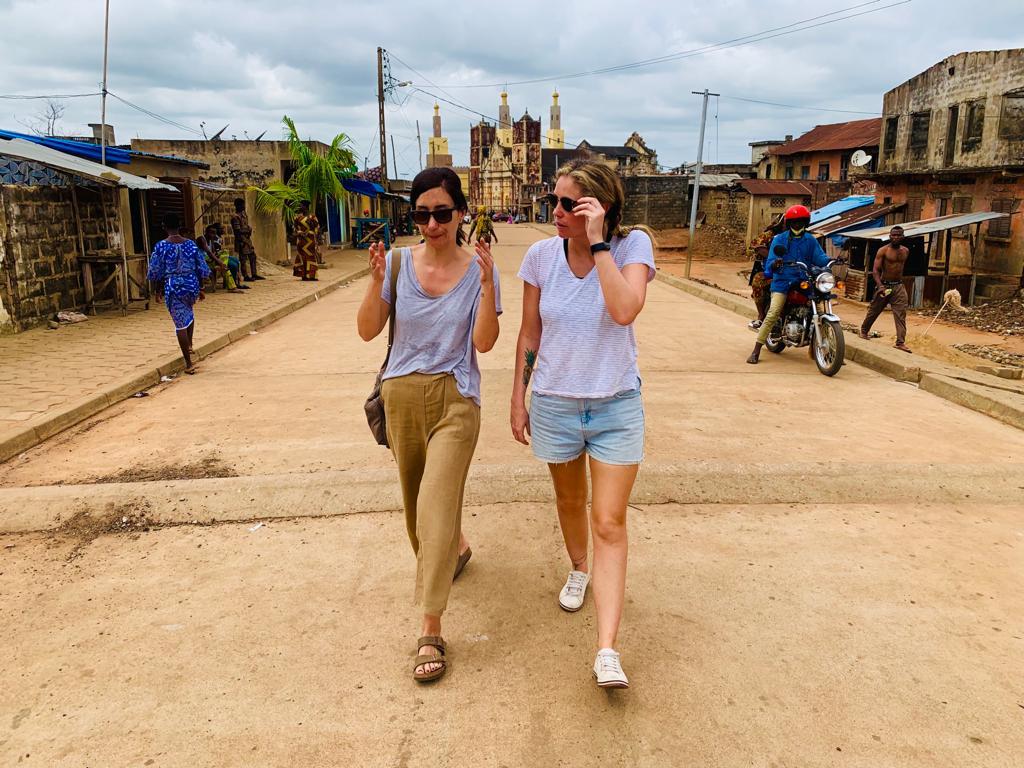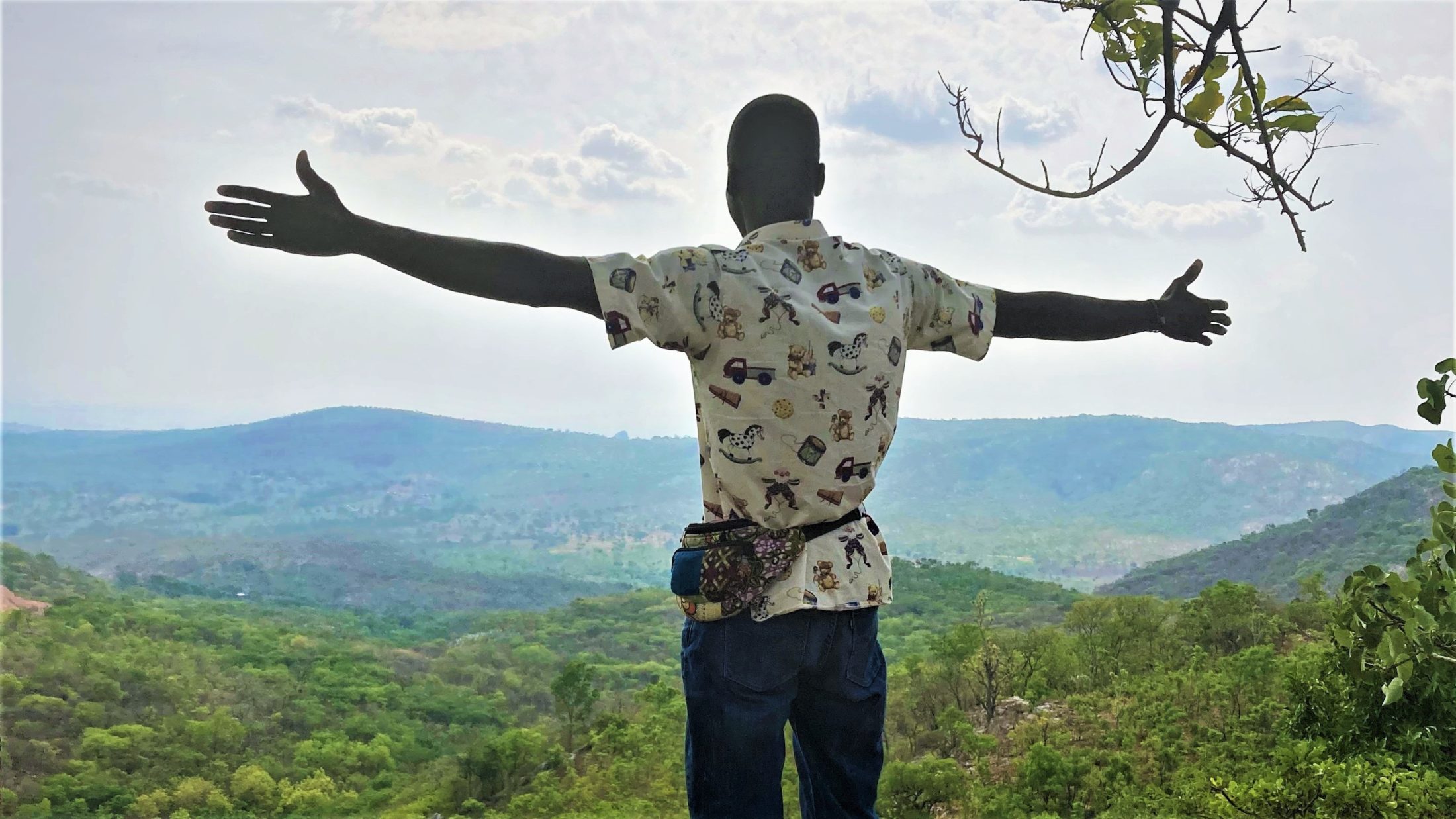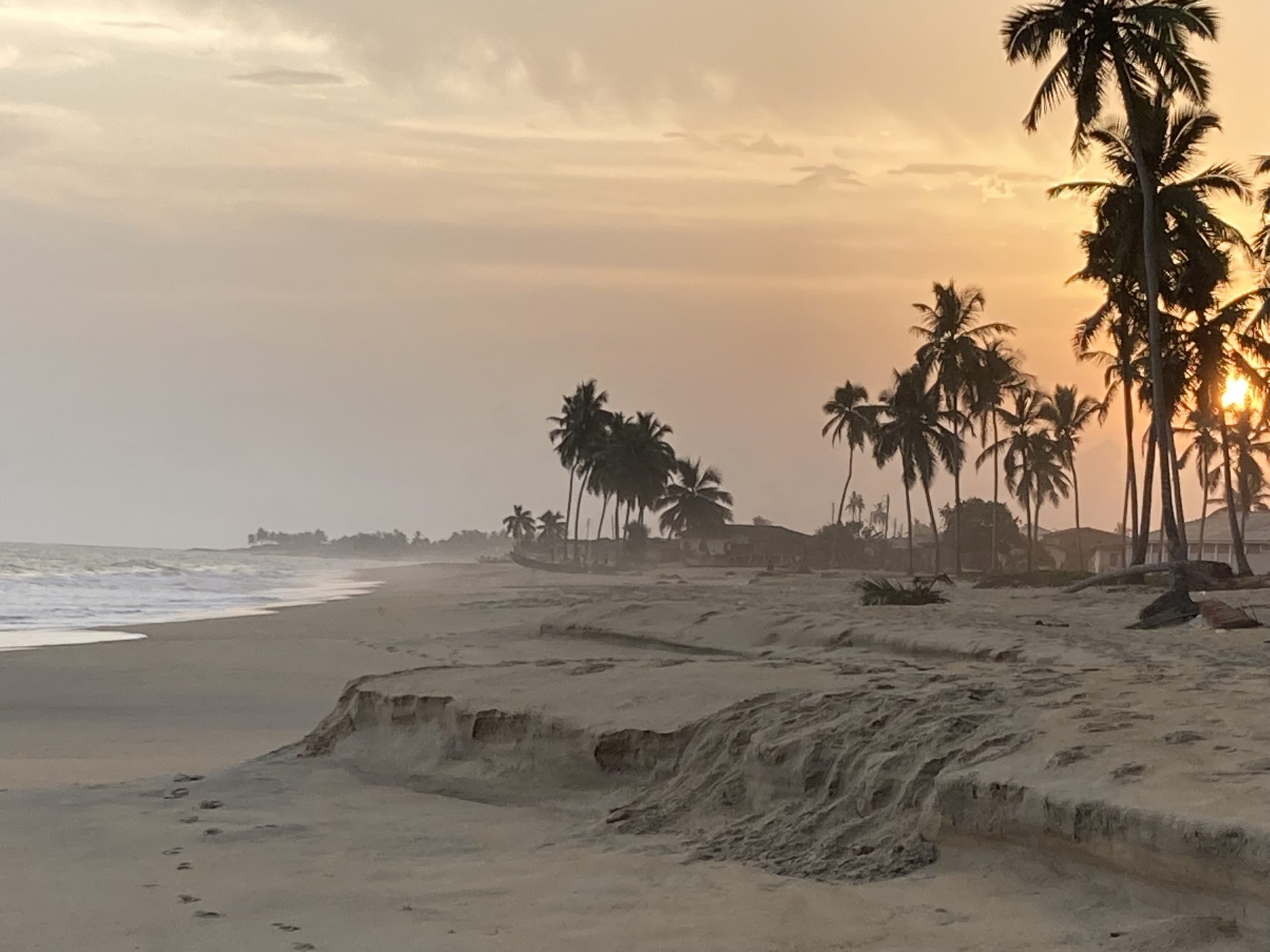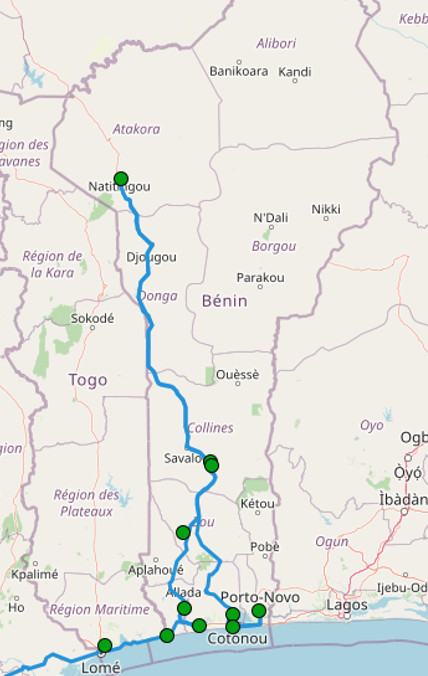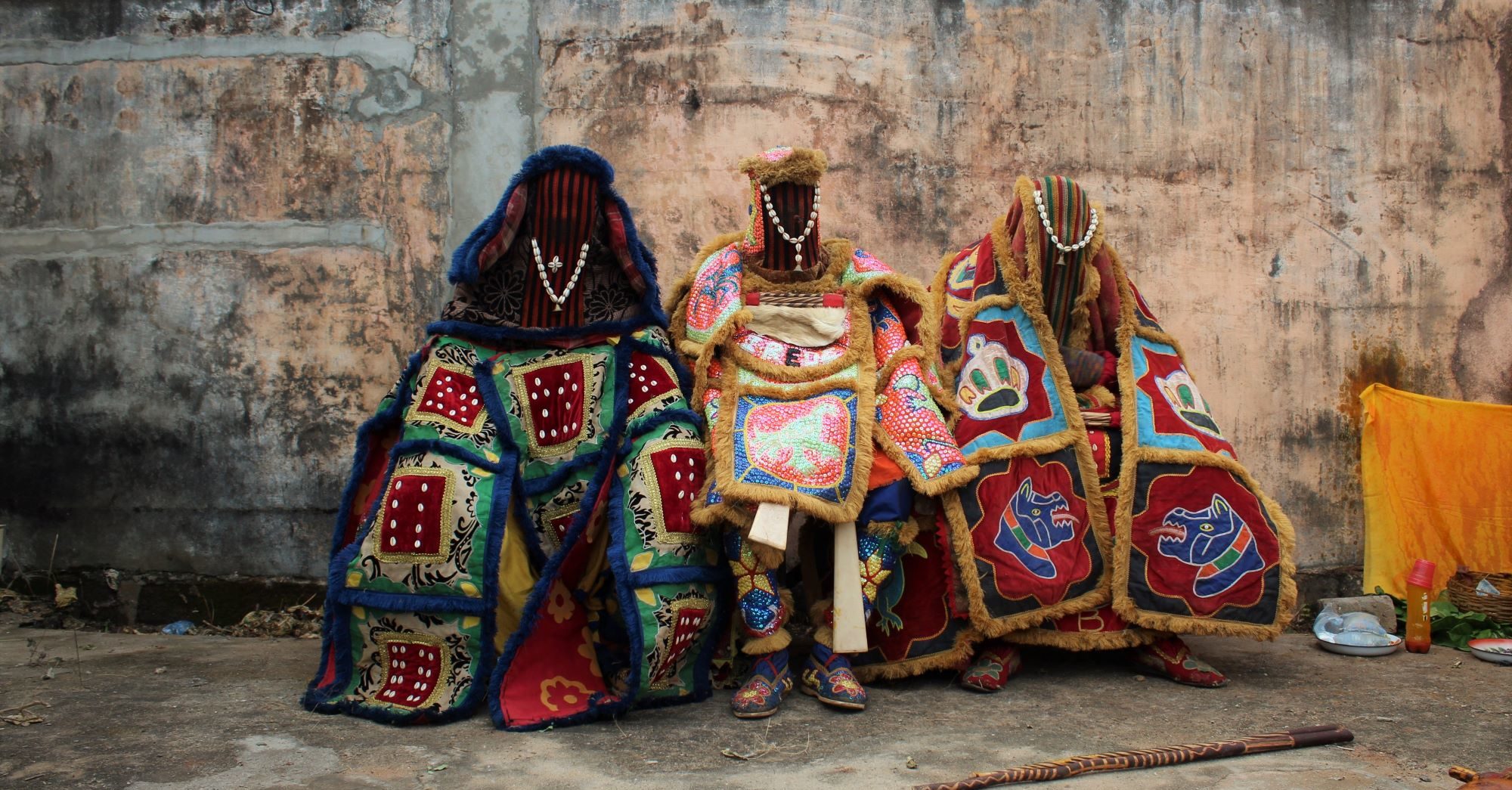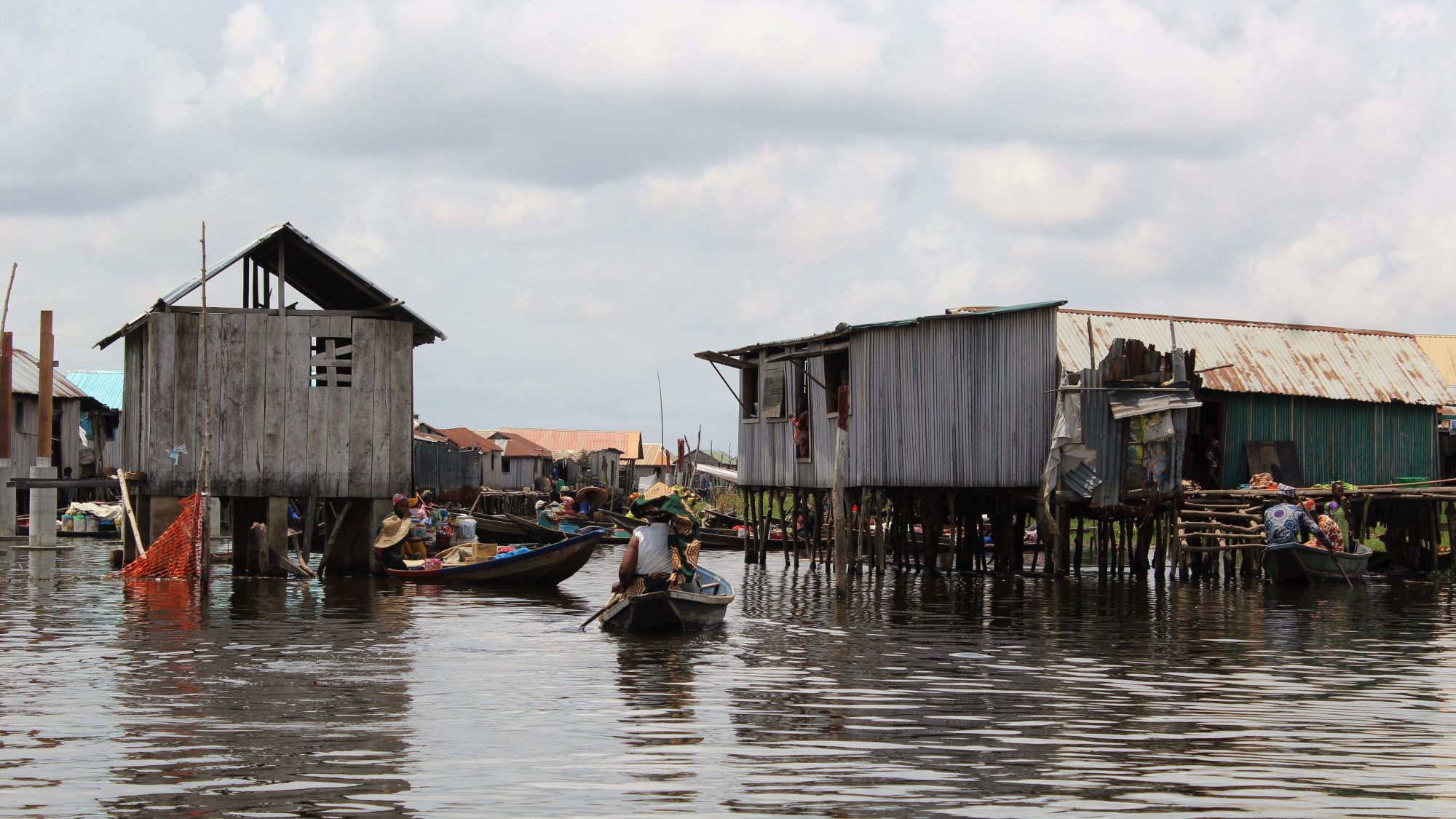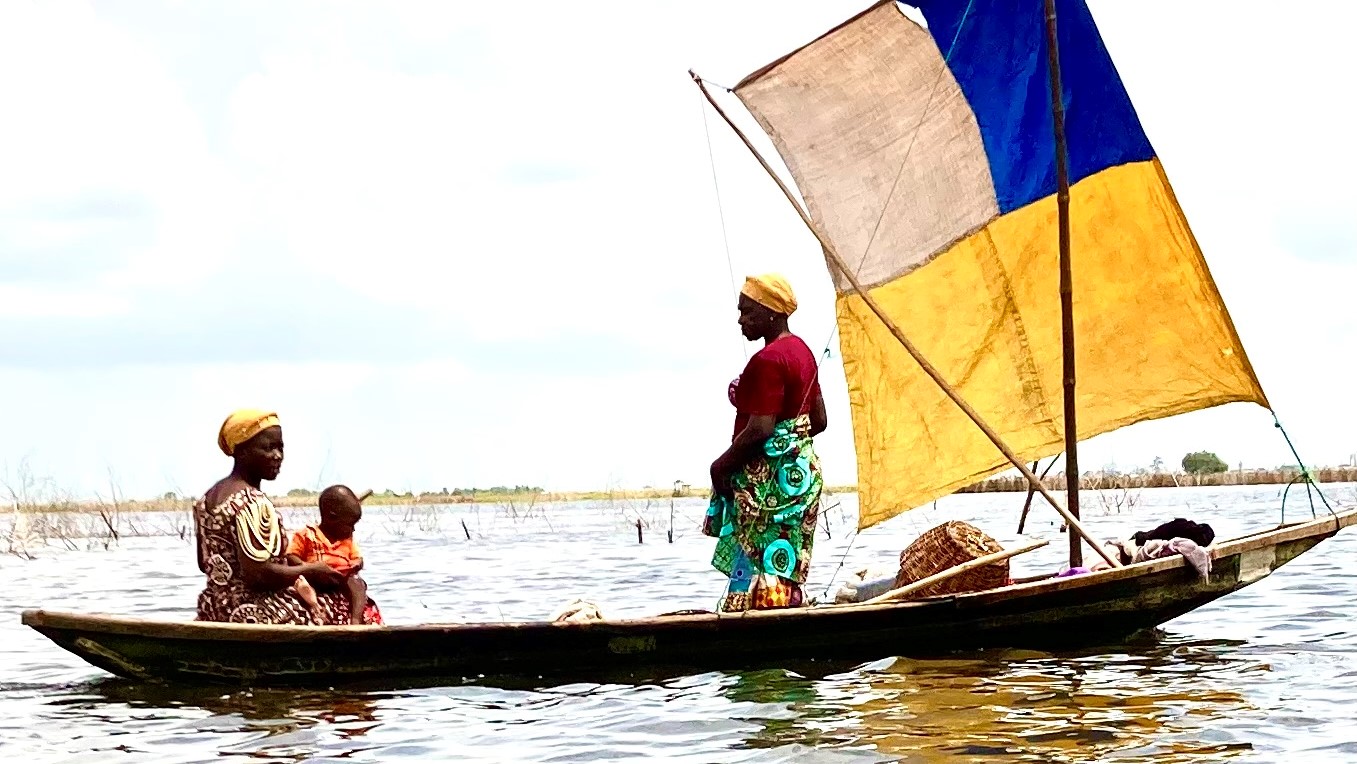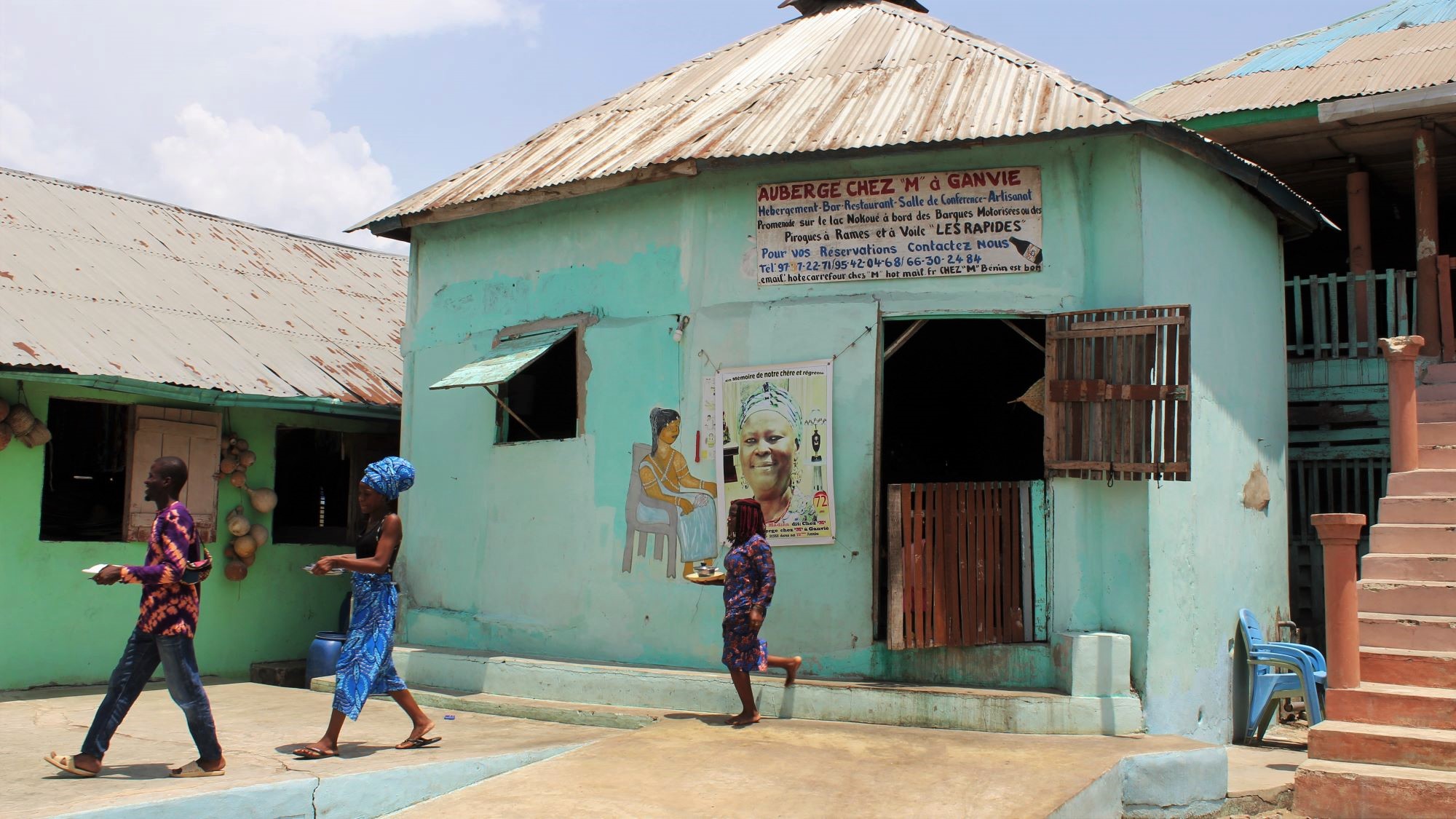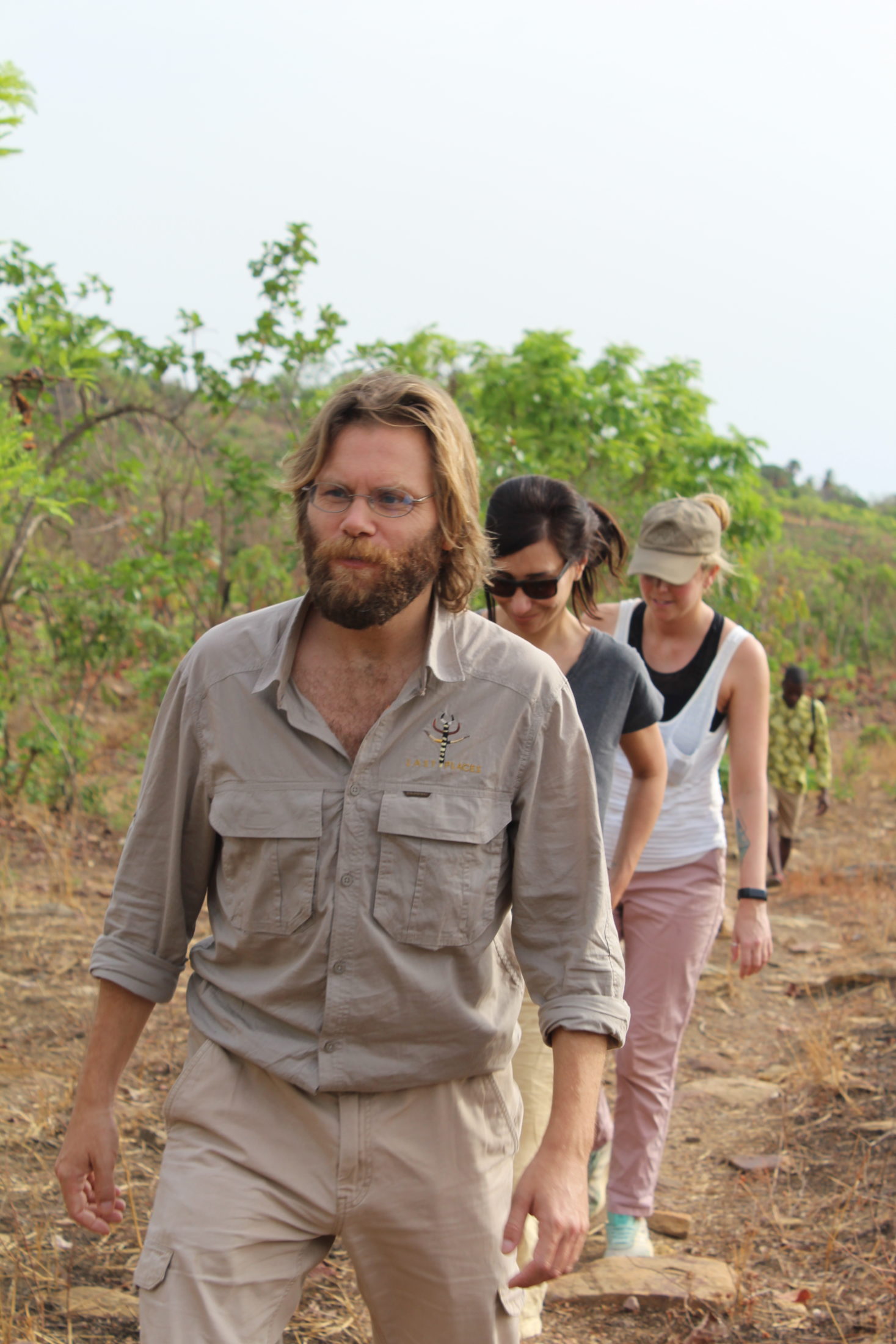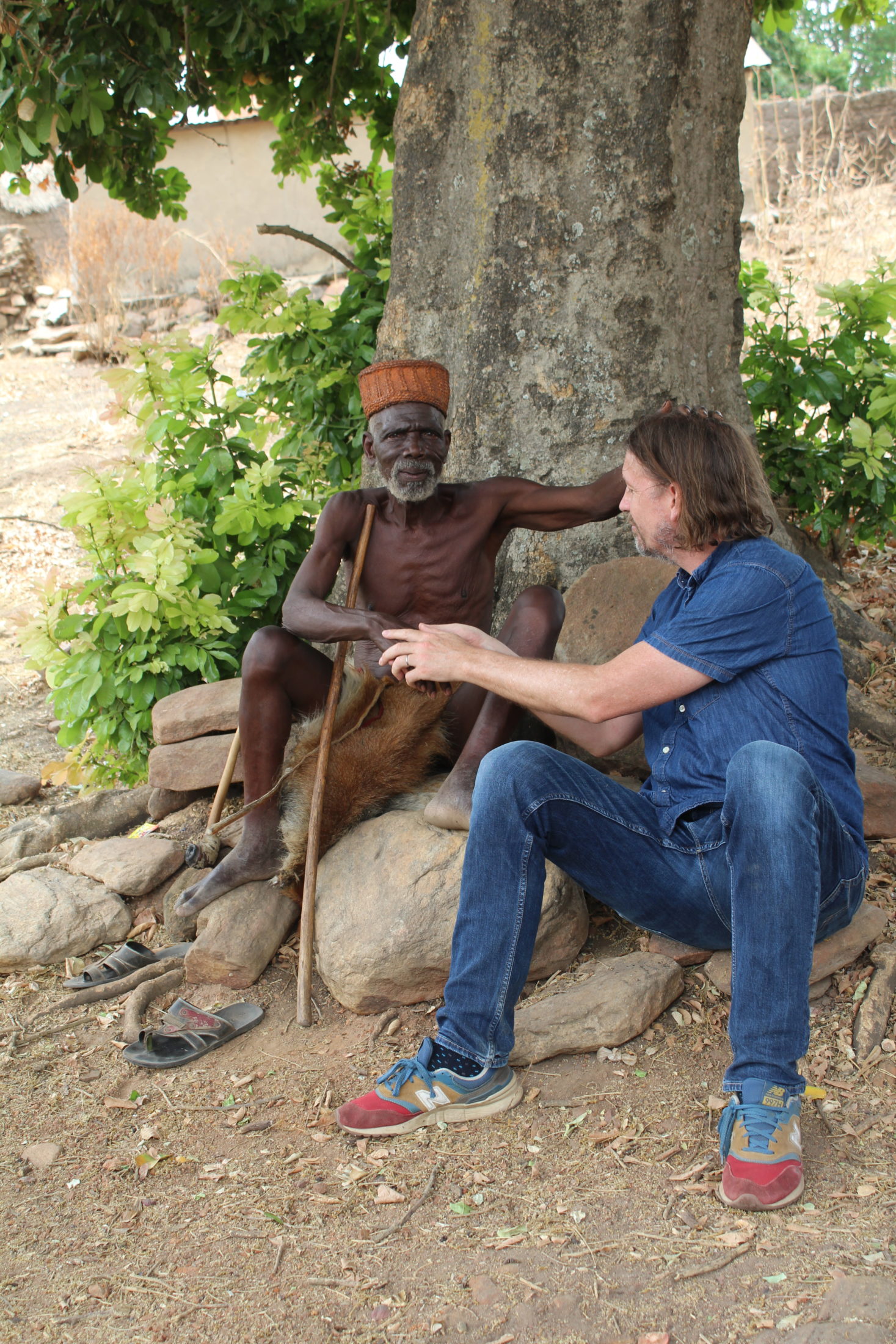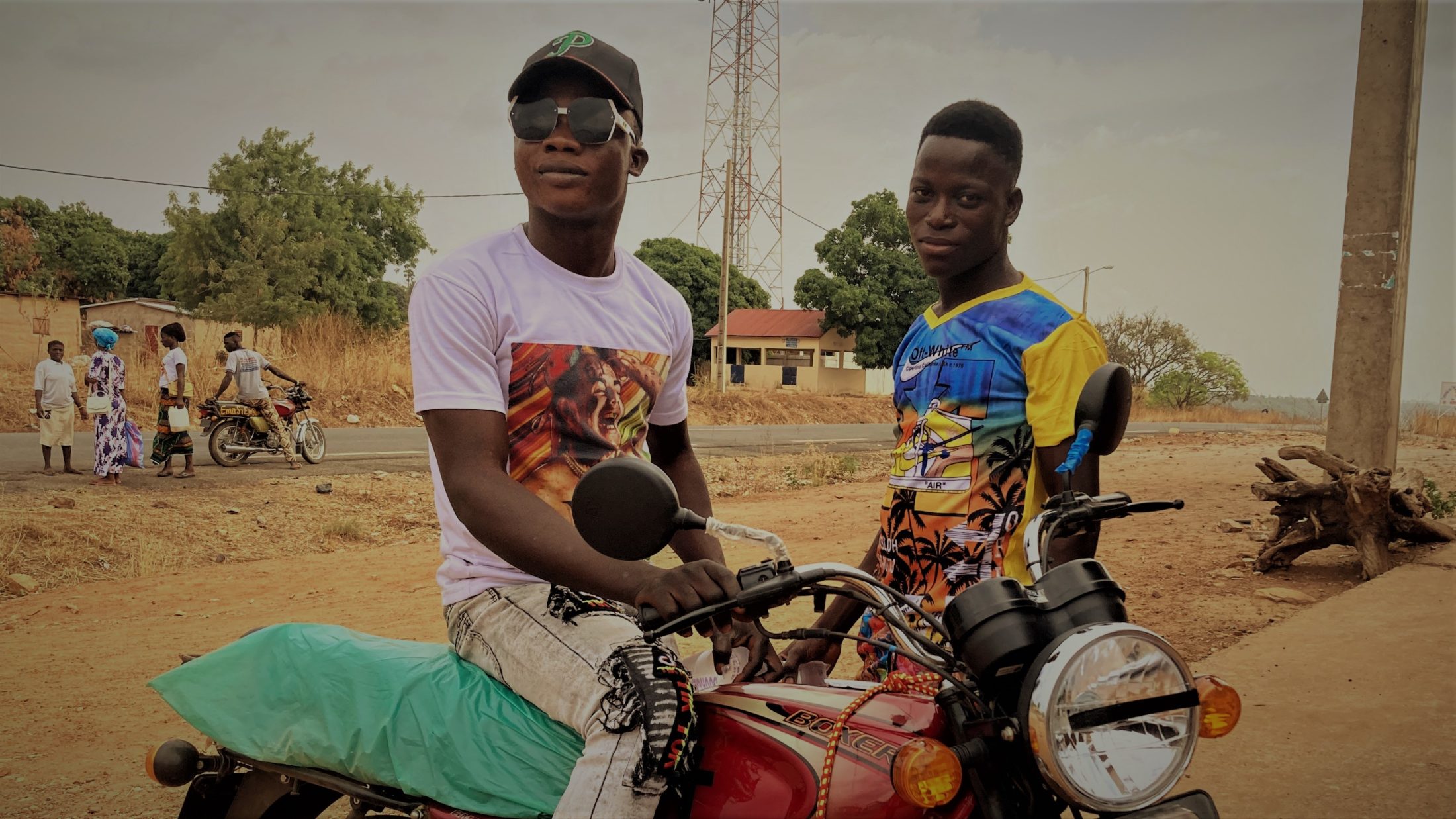Indeed, it is in the context of beginning to understand the meaning of Voodoo that our already eye-opening adventure became what we all hope for when we immerse ourselves in a culture that is not our own: life-changing. As a result of a chance conversation with Joan Riera (who arranged the trip, accompanied us, and is also an anthropologist) about a West African tribe’s historic treatment of children with Downs Syndrome, Dave — who has a son with Downs — was interested to know what it means to be born with Downs in Voodoo society.
To shorten a long and delightful story, that initial interest moved the trip into new territory, one where everybody — host and guest — found themselves on a journey into a place of self-discovery, not least Dave. To have a child with Downs in Voodoo society is to be the recipient of great fortune. Children with Downs — or with any ‘disability’ — are considered, as I understand it, sacred: a great spirit has chosen to live with you. For Dave, this reflected much of what he and his family feel — from a less magical or more secular position — about their own good fortune, but to have it reflected back at him at a societal level was a revelation.
While sticking to the outlines of the original plan, Joan and Adam adapted the itinerary to help grow and enrich the experience, such that it became, as Dave explains in the following clip he made for a book-signing event in Australia, a genuinely transformational trip, and one that ended with a visit to Tohossou River, named after a Voodoo deity, and source, it is believed, of all ‘disabled’ people, irrespective of where they are born. In Voodoo, these sacred people are also known as ‘tohossou’ and when they die are ‘buried’ in the river, in clay coffins. We have all returned changed.
